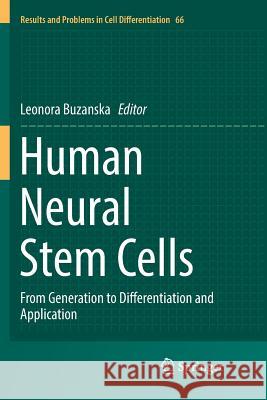Human Neural Stem Cells: From Generation to Differentiation and Application » książka
topmenu
Human Neural Stem Cells: From Generation to Differentiation and Application
ISBN-13: 9783030066710 / Angielski / Miękka / 2018 / 329 str.
Kategorie:
Kategorie BISAC:
Wydawca:
Springer
Seria wydawnicza:
Język:
Angielski
ISBN-13:
9783030066710
Rok wydania:
2018
Wydanie:
Softcover Repri
Numer serii:
000051605
Ilość stron:
329
Waga:
0.48 kg
Wymiary:
23.39 x 15.6 x 1.83
Oprawa:
Miękka
Wolumenów:
01
Dodatkowe informacje:
Wydanie ilustrowane











